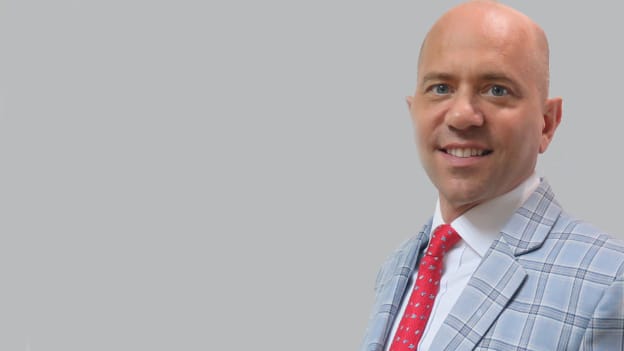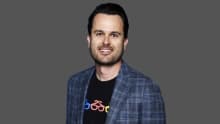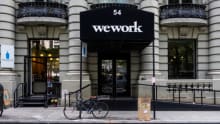COVID-19 has increased awareness of what we use to keep our workplaces clean

If there's one thing COVID-19 has prompted, it's more and better hygiene. The cleaning industry, both products and services, has been among the handful of industries still seeing solid growth despite the pandemic-induced recession. For an insider's perspective, People Matters talked to Thailand-based entrepreneur Peter Wainman, the founder and CEO of cleaning products developer Equator Pure Nature, about how his business has been affected and what shifts he's seen in the industry. Here are the highlights of the conversation.
How has business been over the last few months? Had the disruption to supply chains affected your operations significantly?
Our sales have gone up fairly dramatically, and are getting substantially higher. March was the highest sales ever in our history for Thailand, and June was the highest exports we have ever seen. In many of our export markets, products such as hand wash, hand sanitizer are sold out, and we've had to ramp up production. But we haven't had any significant issues with the production end of our supply chain, because all our products are made in Thailand, using components that are produced domestically. We did have some parts that we sourced from outside Thailand—spray heads for bottles, for example—and when the borders closed we had trouble getting those. But we were able to switch to a local supplier, so that wasn't an issue for long.
The challenges have been with our exports. Logistics within Thailand are still operating, but when it comes to sending our products overseas, there have been delays—additional precautions, additional inspections. And certain of our markets have been facing their own issues. China in March, for instance, pretty much shut down, and while we had product there, we didn't have a logistics supplier that could move our sales within a reasonable amount of time. We've solved that problem by now, but still, individual markets have their own challenges.
Aside from those obstacles, our overall distribution has not been affected, because in most markets we're considered a central household product and a general necessity. Our main channels are supermarkets, which have remained open and seen plenty of traffic.
Do you foresee the increased demand continuing into the longer term, say the next six months?
I've seen a lot of crises over the years—the Asian financial crisis in 1997, the collapse in Russia in 1998, the 2000 tech bubble, the 2008 global financial crisis.
When you have an event that creates fear, there will always be a reaction: stockpiling, buying anything that works, and that creates a large one-time spike in the demand. But it's not all one-time. There is a change in consumer behavior as well, a social shift where people are going to clean more.
Part of this shift is chemical-related. When COVID-19 first happened, I think there was a rush for harsher cleaning chemicals—high concentrations of bleach and alcohol—as people believed those would deactivate the virus. But since then, scientists have found that basic soap is just as effective. And what we're hearing is that people are starting to be concerned about the impact of the harsher substances on their hands—high percentages of alcohol, very drying chemicals—and the skin irritation that results.
Can you share more about this social shift? What trends are you seeing?
I think the worldwide trend towards natural products is accelerating. It started with staples—food and the use of pesticides—and went on to personal care, cosmetics and shampoos and such things. Now, the next phase is the household and what you're using to clean your kitchen, your tabletops. And with so many people working from home these last few months, it's going to carry on into the workplace too. The trend has been around for a while, but COVID-19 has speeded it up by really making people more conscious of what they are using for their hygiene, their health and safety.
And my personal view is that in the future, chemical products won't exist. Because people are realizing more and more that if we can try as a society to use more natural products, that would be so much better for our health. It's also better for the environment—when we use harsher chemical products and they go into the soil and the water, that just damages our plant and animal life. So, if you can clean just as effectively with natural products, those chemical products will eventually go to zero. We're actually hearing similar views from some of the global multinationals that have approached us.
What are some things that might be obvious in your industry, but that most other people might not be sufficiently aware of?
I'd like to touch on this from the point of view of a startup that was funded partially because our investors believed that we could do well by doing good. Of course, it's important that we produce a product that we think people appreciate. But when we first reached out for capital, people invested in us not just because of our product, but because we are a company that's trying to do the right thing—in terms of sustainability, in terms of being environmentally friendly and safer and healthier for users. Some people call it ESG investing, or sustainable investing, or impact investing, but in essence, it's investment that considers the environment.
What people don't necessarily realize is that there is an increasing part of the world that is interested in ESG issues, meaning companies and investors can no longer just focus on making money. Yes, you still have to be able to make money, but are you making money in an ethical and transparent way? And it's important for people to know that there is capital available for entrepreneurs who are looking to follow this ethic. There are increasingly larger pockets of money that are focused on businesses that are trying to do the right thing.














